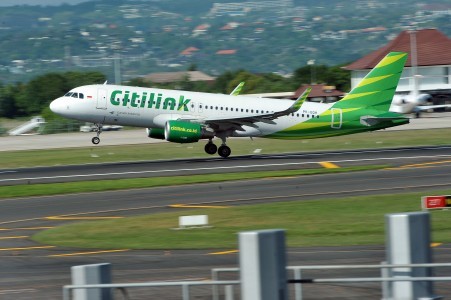Popular Reads
Top Results
Can't find what you're looking for?
View all search resultsPopular Reads
Top Results
Can't find what you're looking for?
View all search resultsWhat you need to know about lower LCC airfare policy
Secretary to the Coordinating Economic Minister Susiwijono said on Monday that both airlines had allocated 30 percent of their seats for the discounted airfares, starting on July 11.
Change text size
Gift Premium Articles
to Anyone
A
compromise has been reached finally as airlines, particularly low-cost carriers, agree to lower ticket prices, which have been the subject of complaints from airline users and tourism industry players, with a number of conditions, including cost-sharing by all stakeholders in the aviation industry.
Under the new policy, LCCs, particularly Citilink Indonesia, a subsidiary of flag carrier Garuda Indonesia, and Lion Air, have agreed to cut airfares by 50 percent of the ceiling prices for their flights on Tuesday, Thursday and Saturday from 10 a.m. to 2 p.m.
Secretary to the Coordinating Economic Minister Susiwijono said on Monday that both airlines had allocated 30 percent of their seats for the discounted airfares, starting on July 11.
“Citilink Indonesia will allocate [discounted prices] for 62 flights each day with a total of 3,348 seats, while Lion Air will allocate 146 flights with a total of 8,278 seats per day,” said Susiwijono after a coordination meeting attended by representatives of the aviation stakeholders.
The official said the routes that would have discounted airfares would be announced later. He added that the government would closely monitor the implementation of the policy.
Citilink Indonesia finance director Esther Siahaan stressed that the airline would soon adjust its flight policy to the new government policy. A similar statement was also made by Lion Air CEO Rudy Lumingkewas.
In principle, all stakeholders in the aviation industry have agreed to cost sharing, but they need to discuss the scheme further, Susiwijono said.
Those party to the initial cost sharing agreement are the government, state-owned airport operators (AP I and AP II), state-owned flight navigation firm AirNav Indonesia and state-owned energy holding Pertamina as an avtur supplier.
The government, for example, had agreed to provide tax incentives, while the airport operators will also want to lower fees, related to the services in 16 airports managed by AP I and 14 airports managed by AP II.
“We will discuss the mechanism later. [...] It's just a technical issue. What is clear is that on every flight, there is a contribution [by all stakeholders] in lowering cost,” said AP I president director Faik Fahmi.
AP II president director Muhammad Awaludding further said the incentives could be in the form of cheaper ground handling costs and other airport service costs. He said AP II would also introduce other measures to improve long term cost-efficiency in the form of infrastructure sharing and resource collaboration. (bbn)










